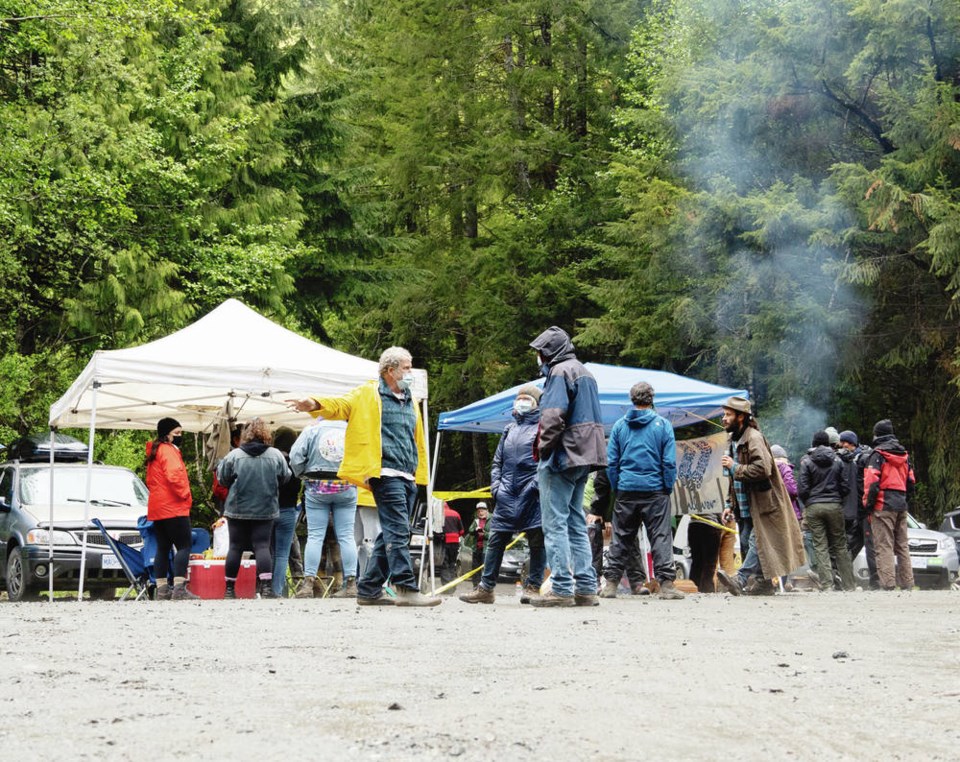Three years ago, a veteran forest campaigner was on the phone, bemoaning how little attention green-minded people were paying to the logging of old-growth on Vancouver Island.
The environmental movement tends to focus on one or two causes at a time, he said, and at that point it was the big energy projects — Trans Mountain, Site C, LNG — that were sucking up all the oxygen. Old-growth logging had become yesterday’s battle, the most passionate opponents being grey- and white-haired veterans of the War in the Woods of the 1990s.
The back-burnering of the issue didn’t make it any less urgent, though, he said. Problems don’t stop being problems just because nobody’s paying attention.
Well, they’re paying attention now, as shown by the Fairy Creek protests.
Which brings us to the climate crisis. It kind of fell off the radar screen over the past year and a half while we were busy not dying of the plague. Greta Thunberg became an adult while you weren’t looking.
Some people have stayed on the case, though. A group of 167 Canadian authors — including Margaret Atwood, Michael Ondaatje and several writers from Vancouver Island — recently signed an open letter to Justin Trudeau, urging him to beef up Bill C-12, the climate legislation introduced last year.
If passed, the bill would see Canada set a series of five-year targets to cut greenhouse gas emissions until 2050. It did get beefed up a bit this week when the federal New Democrats lent it their support, contingent on some changes. That should please the letter-writers.
The third signature under the letter to Trudeau was that of Darrel McLeod, whose autobiographical Mamaskatch: A Cree Coming of Age, won the Governor General’s Literary Award for non-fiction. McLeod splits his life between Mexico and Sooke.
Why did he sign the letter? Because it was something he could do to be part of the solution, he says. Because the signs of climate change are showing. That hit him when forest fire smoke choked Victoria’s skies. “We had the worst air quality in the world for a week. That really brings it home. It’s going beyond the hypothetical now.”
It’s not as though a sternly worded letter from a gaggle of Canadian authors is going to solve the climate crisis, but McLeod still figured it could help keep a light on the subject, bring a little bit of pressure to nudge the needle. “I feel good that I got involved with it, but I’m aware that it’s not enough,” he says. So much more has to change. And how will anything change if our minds wander?
Even before the pandemic, it was hard to sustain a sense of urgency around a story that never moves, that doesn’t follow the gratifying arc of a nine-day news cycle. The first day headline reads “Climate change disaster looms.” On the second day, it’s “Climate crisis is the greatest in history.” By day three: “Climate change, she’s still a pickle.” Day four: “Should the Canucks fire Jim Benning?”
Andrew Weaver recognizes this. Having just emerged from 7 1/2 years in the legislature, the UVic climate scientist knows how short our attention spans are. The nature of politics means elected officials tend to focus on the brush fires they can extinguish before the next election, not the long-term efforts whose rewards won’t be seen until far down the line.
So it must have been frustrating for him to see our attention diverted further by that plague, right? “The plague gave us a seven per cent reduction in global greenhouse gas emissions in 2020,” Weaver replies. “It bought us a couple of years.”
Yes, the upside of the world grinding to a halt is that it offered proof that changes in human behaviour can make a significant difference. And some of those changes — working from home, reducing travel — need not necessarily disappear with the pandemic.
How do you keep people’s attention, stop them from being overwhelmed to the point they turn their heads elsewhere? Give them hope, a path, Weaver says. “You cannot just shout at the clouds. You have to advance solutions.” We did it with acid rain, with CFCs, with leaded gasoline, he says. “We can do it with climate change.”



